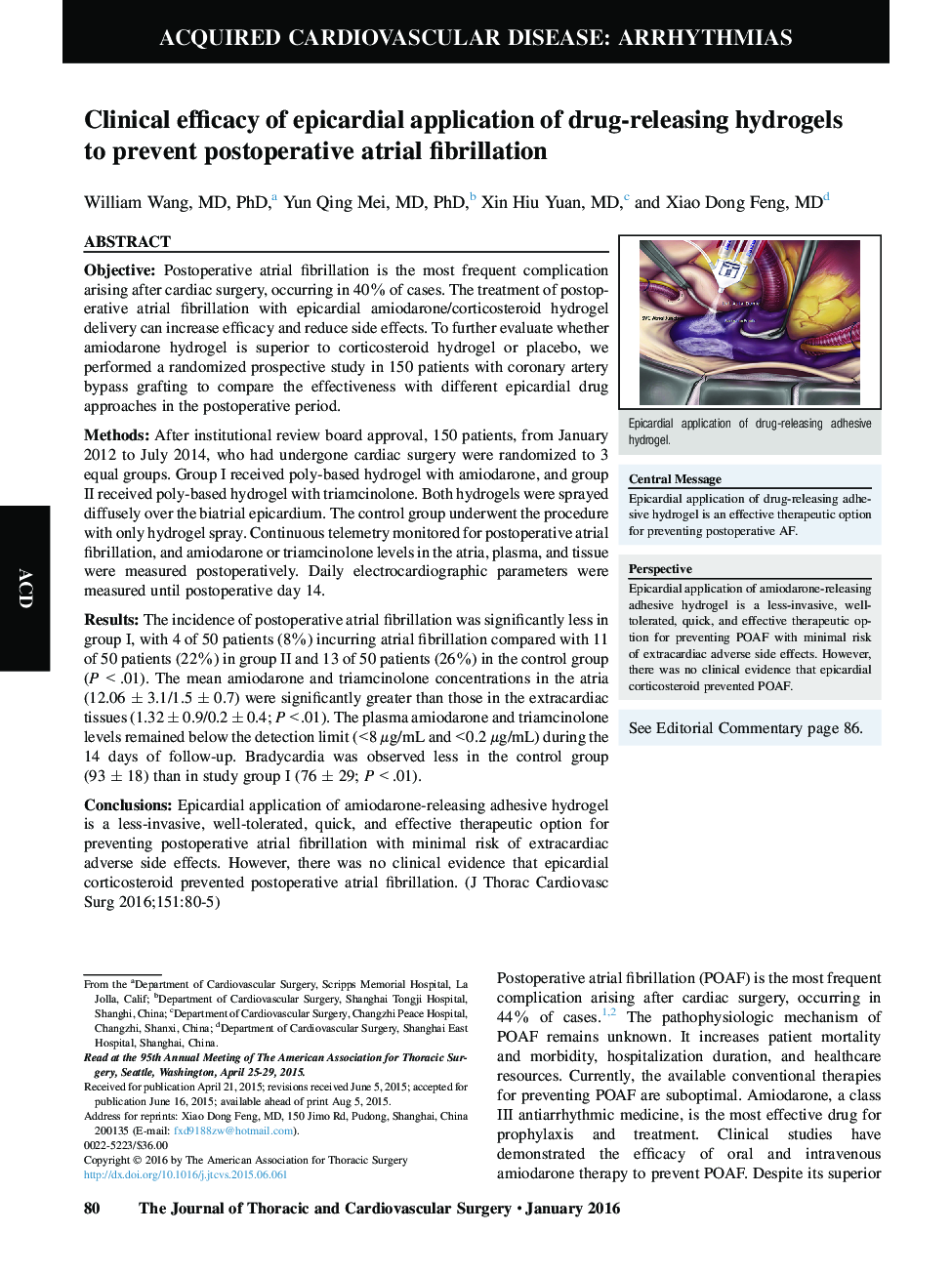| Article ID | Journal | Published Year | Pages | File Type |
|---|---|---|---|---|
| 2978854 | The Journal of Thoracic and Cardiovascular Surgery | 2016 | 6 Pages |
ObjectivePostoperative atrial fibrillation is the most frequent complication arising after cardiac surgery, occurring in 40% of cases. The treatment of postoperative atrial fibrillation with epicardial amiodarone/corticosteroid hydrogel delivery can increase efficacy and reduce side effects. To further evaluate whether amiodarone hydrogel is superior to corticosteroid hydrogel or placebo, we performed a randomized prospective study in 150 patients with coronary artery bypass grafting to compare the effectiveness with different epicardial drug approaches in the postoperative period.MethodsAfter institutional review board approval, 150 patients, from January 2012 to July 2014, who had undergone cardiac surgery were randomized to 3 equal groups. Group I received poly-based hydrogel with amiodarone, and group II received poly-based hydrogel with triamcinolone. Both hydrogels were sprayed diffusely over the biatrial epicardium. The control group underwent the procedure with only hydrogel spray. Continuous telemetry monitored for postoperative atrial fibrillation, and amiodarone or triamcinolone levels in the atria, plasma, and tissue were measured postoperatively. Daily electrocardiographic parameters were measured until postoperative day 14.ResultsThe incidence of postoperative atrial fibrillation was significantly less in group I, with 4 of 50 patients (8%) incurring atrial fibrillation compared with 11 of 50 patients (22%) in group II and 13 of 50 patients (26%) in the control group (P < .01). The mean amiodarone and triamcinolone concentrations in the atria (12.06 ± 3.1/1.5 ± 0.7) were significantly greater than those in the extracardiac tissues (1.32 ± 0.9/0.2 ± 0.4; P < .01). The plasma amiodarone and triamcinolone levels remained below the detection limit (<8 μg/mL and <0.2 μg/mL) during the 14 days of follow-up. Bradycardia was observed less in the control group (93 ± 18) than in study group I (76 ± 29; P < .01).ConclusionsEpicardial application of amiodarone-releasing adhesive hydrogel is a less-invasive, well-tolerated, quick, and effective therapeutic option for preventing postoperative atrial fibrillation with minimal risk of extracardiac adverse side effects. However, there was no clinical evidence that epicardial corticosteroid prevented postoperative atrial fibrillation.
